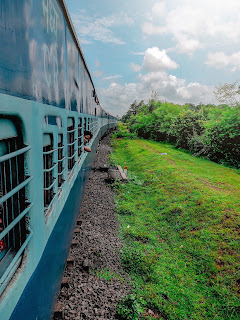Indian Railways History
Indian Railways Evolution
The history of Indian Railways dates back to the British colonial rule in India in the 19th century. The first railway line in India was established in 1853 between Bombay and Thane, and it was primarily used for transporting goods. The first passenger train service began in 1855 between Bombay and Thane.
In the following years, the British government laid more railway lines in different parts of India, connecting major cities and ports. This helped in the economic development of the country as it facilitated trade and commerce. The Indian Railways was then known as the "Railway of the Raj" and was primarily used for the transportation of goods and troops.
After India gained independence in 1947, the Indian Railways came under the control of the government of India. The government nationalized the Indian Railways in 1951 and it became one of the largest railway systems in the world.
In the post-independence period, the Indian Railways underwent several changes and improvements. The government invested heavily in the modernization of the railway system and introduced new technologies and equipment. New trains such as Rajdhani Express and Shatabdi Express were introduced for high-speed travel.
The Indian Railways also played a significant role in the country's economic development by connecting remote areas and providing employment opportunities. Today, the Indian Railways is one of the largest employers in the country and is responsible for the transportation of millions of passengers and goods every day.
In recent years, the Indian government has taken several steps to modernize and improve the Indian Railways. This includes upgrading infrastructure, introducing new technologies such as high-speed trains, and making the railway system more efficient and customer-friendly. The government has also focused on the safety of passengers and has taken several measures to improve it.
In conclusion, the history of Indian Railways is closely linked to the history of India. The railway system has played a vital role in the country's economic development and has connected people from different parts of the country. Despite the challenges, the Indian Railways continues to evolve and improve, and it remains an important part of India's infrastructure and transportation system.


Comments